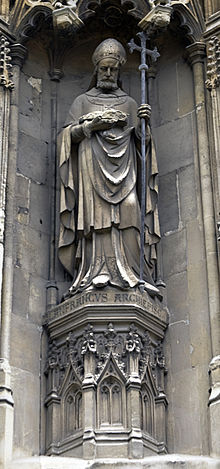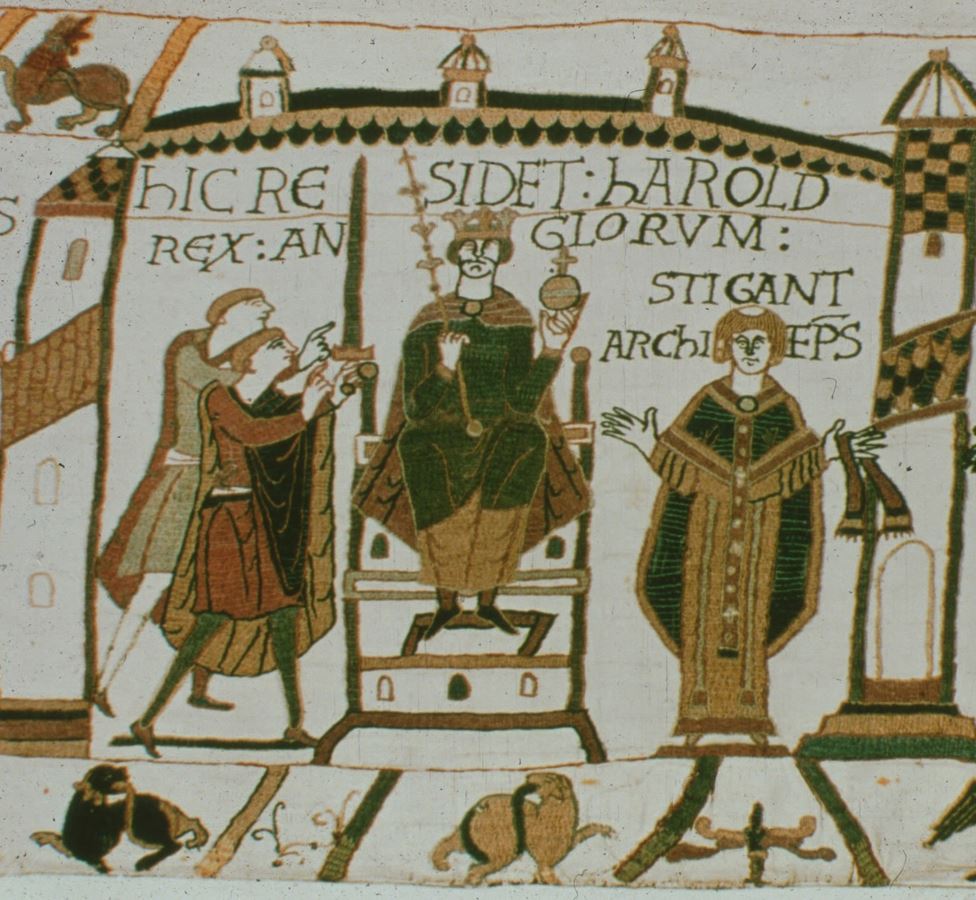 |
Archbishop Lanfrancc.1008 - 1089 |
 |
Born in Pavia and he trained in the liberal arts and became a jurist. At some point in the 1030s, he left Italy and traveled to France and Normandy, where he became teaching, eventually becoming a master at the cathedral school of Avranches in 1039. That position did not last long and in 1042, he entered the newly founded monastery at Bec, eventually living there in seclusion. As Bec's fortune's began to falter, the abbot, Herluin, convinced Lanfranc to begin teaching as a way to rescue to abbey. Among his students was Anselm of Bec and possible Anselm of Baggio, who would become Pope Alexander II. Lanfranc began writing treatises and defending doctrine throughout France and his reputation grew as he was sought for advice. He was raised to the role of Prior of Bec and in 1053, he objected to the pending marriage of Duke William of Normandy to his cousin, Matilda of Flanders. As he was on the verge of exile, he reached a reconciliation with William and argued the Duke's case to Pope Leo IX, winning a dispensation for the couple to marry. In After Hastings, Lanfranc is appointed to fill the seat as Archbishop of Canterbury, partly as a pawn in a battle between the papacy and the monarchy. Too intelligent to allow himself to be used in that way by either Pope Alexander or King Harold, Lanfranc takes the hand he's dealt and uses it to influence the political and religious situation in a manner he deems is proper. In our world, he was elected to become archbishop of Rouen in 1067, but turned the position down. When Stigand was deposed in 1070, the position of Archbishop of Canterbury was offered to Lanfranc and he accepted, beginning a reformation of the English Church which brought him into conflict with the Archbishop elect of York, who claimed independence from Canterbury, another theme that crops up in After Hastings. Lanfranc and William formed a partnership in their treatment of the clergy in England, replacing Ango-Saxon clergymen with Normans, but also using synods to deal with Church legal matters. Lanfranc also helped quell the unrest of the nobility against William and after William's death in 1087, he championed William Rufus' claim to the English throne. Lanfranc died on May 24, 1089 and William Rufus refused to appoint a successor until 1093, when he selected Lanfranc's former student, Anselm of Bec. |

Return to cast of characters